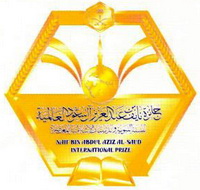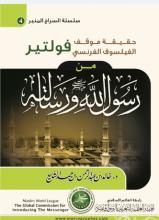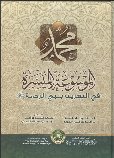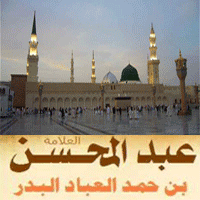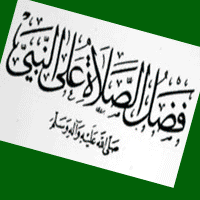The Mission
The Prophet (Peace and blessings of Allah upon him) was unequalled in his generosity, liberality, open-handedness and leniency. His generosity was comprehensive and included all levels of giving, the highest of which is to offer one's life in the cause of Allah(Almighty). He gave himself in fighting against the enemies of Allah(Almighty) and he was closest to the enemy during battle; only the bravest soldiers would stand beside him.
delivered on 623 A.D at Arafat, Mecca.
After praising, and thanking Allah (the One God) he said:
"Oh People, lend me an attentive ear, for I know not whether, after this year
I shall ever be amongst you again. Therefore listen to what I am saying to you
very carefully and TAKE THESE WORDS TO THOSE WHO COULD NOT BE PRESENT HERE TODAY.
O People, just as you regard this month, this day as Sacred, so regard
the life and property of every Muslim as sacred trust. Return the goods
Muslims have always been encouraged to learn and recite some of the invocations that were taught or spoken by the Messenger of Allah, not only because his words are concise, comprehensive and linguistically eloquent, but because obviously, he was the one most knowledgeable about how the Creator of the universe should be addressed.
Head of state, teacher and advisor - He became the head of an emerging state surrounded on all sides by enemies. He established political ties with the various factions among the local inhabitants and drew up a constitution. He received delegations and sent messages. He knew that man has a responsibility to develop the earth and civilize it, and was a perfect example of balance and moderation. He developed a well-disciplined nation out of chaotic tribalism and provided peace in place of war.
Allah, the Exalted, stated clearly in the Qur'an that this world, along with the present universe, will one day come to an end in order to make way for the new creation in which balance and justice prevail. Its final era began with the prophethood of Muhammad and will close at the Hour of Resurrection. There will be no divine scripture after the Qur'an and no prophet after Muhammad. He once observed, "I and the Final Hour are like these two," and held up his index and middle fingers.[1]
The devout worshipper - His greatest pleasure was in prayer, for that is when a believer is closest to his Lord. He would stand in prayer at night so long that his feet would swell, and would weep until his beard was wet. He used to fast often, usually on specific days of the week and month. He was constantly aware of his Lord, remembering Him in every situation and fearing His displeasure.
Qur'an - The only divine scripture that has remained in the world completely intact up to the present day is the Qur’an.[1] It is God's ultimate and final message to mankind and the primary source of Islamic doctrine. It contains information and legislation which encompasses all spheres of human life.
Concept of Allah, Islam and Prophethood <br><br><br>
In his farewell address during the Hajj, the Messenger of Allah informed the large gathering of Muslims and all future generations that they would not fall into error so long as they adhered to the Book of Allah (the Qur'an) and Sunnah of His Prophet. "Sunnah" in Islamic terminology means the divinely ordained way or method followed by Prophet Muhammad, and is derived from the body of saheeh (authentic) and hasan (acceptable) hadith literature. In turn, the Prophet's Sunnah is followed by Muslims as the best means to obtain Allah's approval and His reward in the life to come.
Islam and Muslims
